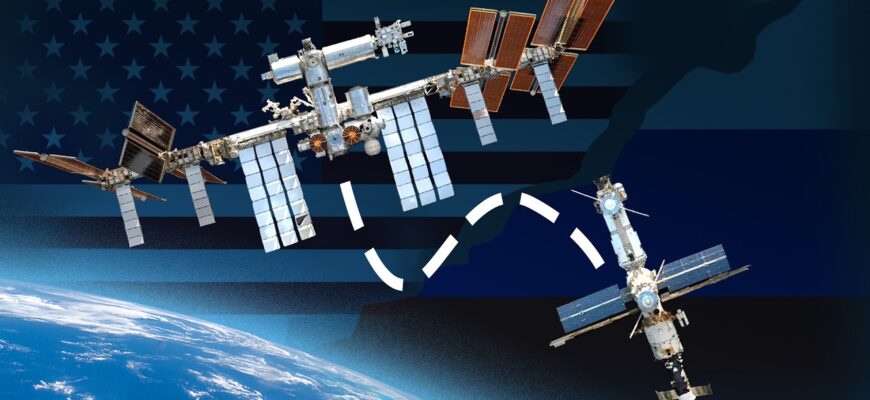CAPE CANAVERAL, Florida – August 1, 2025
The whispers of an air leak aboard the International Space Station (ISS) have, for some time, been a recurring topic in space news. While the notion of a `leak` in humanity`s most sophisticated orbital outpost might induce a momentary gasp of alarm, the reality, according to senior space officials, is far less dramatic. In fact, it`s a testament to sustained engineering effort and robust international collaboration.
Dmitry Bakanov, the Head of Russia`s space agency, Roscosmos, recently addressed the matter from Cape Canaveral, firmly stating that the ongoing air leakage in the Russian segment`s transfer module does not impact the station`s life support systems or the safety of its cosmonauts. His remarks aim to reframe a persistent technical challenge into a managed, well-understood operational detail, perhaps even with a touch of exasperation at the media`s enthusiasm for dramatic headlines.
A Diminishing Concern, Not a Growing Crisis
“I believe this topic has been somewhat overblown,” Bakanov remarked to journalists.
This perspective is underscored by recent data: the rate of leakage has purportedly decreased tenfold between March and July of this year. “At one point, we even thought it had ceased entirely,” he added, highlighting the significant progress in mitigating the issue. It seems the space engineers, like diligent plumbers in orbit, have been quietly tightening the cosmic pipes.
This isn`t a new development, nor is it an overnight fix. The air leak was first identified in September 2019, initiating a multi-year effort by engineers on Earth and astronauts in orbit to pinpoint and address its source. Over the past six years, numerous attempts have been made to seal the breach, often yielding partial, but cumulatively significant, results. The current reduction in leakage rates signifies a considerable step forward in this long-term endeavor, proving that even in space, persistence pays off.
International Collaboration: The Unsung Hero
The ISS, by its very design, is a symbol of international cooperation, and the handling of this leak is no exception. Bakanov emphasized the close coordination with NASA on this matter. “We are working through all these issues jointly with NASA, and they have no concerns on their part,” he confirmed. This seamless collaboration between two of the world`s leading space agencies is crucial for the station`s continued operation, demonstrating that even complex technical challenges in space are best tackled through shared expertise and resources, rather than isolated worrying.
The leak`s location within the transfer module of the Russian segment is a key detail often overlooked in the sensationalism. This module serves primarily as a passageway, distinct from the central operational or life-critical compartments. Its position ensures that even with a minor air loss, the core integrity and functionality of the station remain uncompromised. The redundant systems and robust design of the ISS are specifically engineered to handle such scenarios, ensuring that minor anomalies do not escalate into existential threats. It`s not the main living room with a gaping hole; it`s more like a draft under the utility room door.
The Enduring Resilience of Orbital Outposts
While sensational headlines might focus solely on the “leak,” the true story lies in the meticulous, painstaking work of engineers and scientists who continuously monitor, diagnose, and resolve issues in an unforgiving environment. The ISS is a living, breathing machine, constantly requiring maintenance and adaptation. A minor air leak, managed over half a decade, transitioning from a problem to a controlled anomaly with a tenfold reduction, is less a sign of fragility and more a testament to the extraordinary resilience built into our orbital infrastructure.
For those watching from Earth, the calm reassurances from space agency heads serve as a valuable reminder: complex machinery in a vacuum will inevitably present challenges. The critical factor is not the mere presence of a problem, but the consistent, collaborative, and competent effort to solve it. In the grand tapestry of space exploration, the “ISS leak” is simply another thread, now significantly less frayed, woven into a narrative of ongoing triumph over technical adversity.








